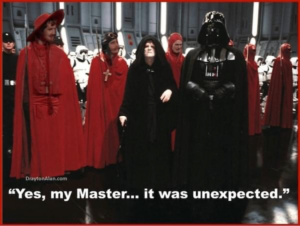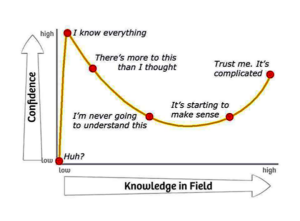
 In my humble opinion, all Christ-followers should be exhibiting the four P’s in their lives. As His followers, every one of us has been called by our risen Lord to partner with Him in making disciples of the lost, thereby transforming the culture in which we live. If we are not effectively and powerfully impacting those within our spheres of influence with the Gospel of Christ, it is entirely likely one or more of these four items is missing or crippled in our walk with Him. They are:
In my humble opinion, all Christ-followers should be exhibiting the four P’s in their lives. As His followers, every one of us has been called by our risen Lord to partner with Him in making disciples of the lost, thereby transforming the culture in which we live. If we are not effectively and powerfully impacting those within our spheres of influence with the Gospel of Christ, it is entirely likely one or more of these four items is missing or crippled in our walk with Him. They are:
- Purity
- Passion
- Power
- Purpose
None of them work well — if at all — without the other three. Holding them all in perfect balance continually eludes us due to that pesky flesh of ours. That being said, they all should at least be both present and growing for our walk with God to have any positive impact on our interpersonal relationships and the unsaved world around us.
Purity
Moral/Behavioral Purity
This one is foundational to all the others. All the passion, power, and purpose we can muster is ultimately rendered spiritually worthless absent this one. More than a few titans of the faith have fallen by the wayside or died early deaths due to moral failures. All have compromised the testimony of Jesus in varying degrees along the way.
 Our identity/position in Christ as blood-bought, justified-by-grace-alone-through-faith-alone-in-Christ-alone, righteous-in-His-sight, seated-in-heavenly-places-with-Christ, etc. children of God is a scriptural fact for all who have received the New Birth. It is impossible to read the epistles in context without coming to that very conclusion. The problem with many of us — especially in Word of Faith (WoF) circles— though, is we tend to leave it at that in the tragically mistaken assumption our spiritual identity is entirely sufficient in, of, and by itself with no further response required on our part other than to accept these spiritual truths by faith and attend church regularly.
Our identity/position in Christ as blood-bought, justified-by-grace-alone-through-faith-alone-in-Christ-alone, righteous-in-His-sight, seated-in-heavenly-places-with-Christ, etc. children of God is a scriptural fact for all who have received the New Birth. It is impossible to read the epistles in context without coming to that very conclusion. The problem with many of us — especially in Word of Faith (WoF) circles— though, is we tend to leave it at that in the tragically mistaken assumption our spiritual identity is entirely sufficient in, of, and by itself with no further response required on our part other than to accept these spiritual truths by faith and attend church regularly.
However, an equally in-context reading of those selfsame epistles also reveals God’s requirements for how we should be responding to that salient Truth: increasingly loving and righteous behavior over time. In theology-speak, we call that progress towards godliness “sanctification,” specifically:
- We are to express our love for God through our humble submission to Him, heartfelt worship, and obedience to His commands. The foremost among those commands is to love other folks — especially those terribly annoying ones who are so hard to love for various reasons up to and including a demonstrated intent to destroy us.
- We are to put away the works of the flesh. Galatians 5:19-21 itemizes these as “sexual immorality, lustful thoughts, pornography, chasing after idols instead of God, manipulating others, hatred of those who get in our way, senseless arguments, resentment when others are favored, temper tantrums, angry quarrels, self-centered thinking, being in love with our own opinions, being envious of the blessings of others, murder, uncontrolled addictions, wild parties, and all other ungodly attitudes and behaviors.”
- If all that wasn’t difficult enough, we’re always supposed to “do the right thing” even when that “right thing” may cost us dearly:
In every relationship, be swift to choose peace over competition, and run swiftly toward holiness, for those who are not holy will not see the Lord .
Hebrews 12:14 TPTTimothy, you are God’s man, so run from all these errors. Instead, chase after true holiness, justice, faithfulness, love, hope, and tender humility.
1 Timothy 6:11 TPT
Moral purity is never about a bunch of rules we need to keep, like what we wear or watch (though His Word and Spirit should definitely influence our choices in such areas). Yes, there are some things we are clearly commanded to avoid as I’ve just listed, but any victory over sin is accomplished through our surrender to the Most High and allowing His Spirit to grow His fruit in us, not by our personal ethical aspirations and strength of will. As I have said repeatedly elsewhere here at Miscellaneous Ramblings, if we could have obeyed in our own strength, Jesus’ death on the Cross was unnecessary.
Have you ever walked by a fruit tree? You ever seen one of them straining to produce its fruit? Nope! Fruit is produced by its connection to the tree’s internal processes (the nutrients/water/etc. flowing out of the life inherent in the tree). When we branches remain connected to our Vine (see John 15), His life flows through us and, voilá!, fruit happens!
The bottom line is moral purity is an outgrowth of our surrender and connectedness to Him, not through pursuing it using own peculiar idiom and adhering to a bunch of external rules and regulations.
Doctrinal Purity
 Whenever someone mentions this kind of purity, what often springs to mind is the Spanish Inquisition (who no one expects! 😀), burning heretics at the stake, and committing other atrocities designed to keep the faithful in line. That line usually consists of whatever the current state of Christendom (the institutional expression of Christianity in the earth) considers to be “orthodox.” Orthodoxy is frequently gauged by centuries-old church traditions and the opinions of long-dead theologians who may not have gotten it completely right back in the day rather than unvarnished, rightly divided Scriptures.
Whenever someone mentions this kind of purity, what often springs to mind is the Spanish Inquisition (who no one expects! 😀), burning heretics at the stake, and committing other atrocities designed to keep the faithful in line. That line usually consists of whatever the current state of Christendom (the institutional expression of Christianity in the earth) considers to be “orthodox.” Orthodoxy is frequently gauged by centuries-old church traditions and the opinions of long-dead theologians who may not have gotten it completely right back in the day rather than unvarnished, rightly divided Scriptures.
Don’t get me wrong here; we stand on the shoulders of the giants of Protestantism who risked life, limb, and reputation for God’s Truth; we owe them all an incredible debt of gratitude! Everything we are and have in this day as Christ-followers is rooted in their theological brilliance as well as their Holy-Spirit-empowered audacity when speaking truth to power. But regardless of their individual genius, gifting, empowerment, and courage they were — as are we all today — imperfect human beings hindered by their own corrupted-by-The-Fall intellects and preconceptions. They also had worldviews shaped by the eras in which they lived not to mention certain theological assumptions corrupted by Greek philosophy and/or Roman Catholicism, all of which were never addressed simply because they could not see the need to do so at the time.
And that is my very point here. We need to go back to God’s Word and continually use it as a yardstick against which we measure everything we assume about what we believe, especially our religious traditions. As the Holy Spirit reveals our faulty preconceptions, He shows us where we need to adjust our beliefs while we remain humble enough to admit we are wrong and make the necessary correction(s), publicly if necessary.
Only one Person in the history of mankind has had a complete and unflawed grasp of theology: Jesus. He embodies perfect theology. By “perfect,” I mean there is zero disconnect between His Words, His deeds, what the Bible says, and how He interpreted and applied it.
The rest of us? Not so much!
 No matter how much we may think we know or however many initials may come after our names, we are all plagued with the same spiritual nearsightedness as every other human being on this planet regardless of personal education, genius, or era in history. It is entirely safe to say all of the heresies which have arisen throughout church history boil down to some bozo trying to remove divine mystery using their own personal brainpower and then persuading the spiritually immature and scripturally ignorant into believing they have a lock on “the Truth.” By divine mysteries, I not talking about some Gnostic or New Age mumbo-jumbo, but doctrines like the Trinity, the hypostatic union (Jesus is simultaneously 100% man and 100% God), Jesus becoming sin on the Cross, etc.
No matter how much we may think we know or however many initials may come after our names, we are all plagued with the same spiritual nearsightedness as every other human being on this planet regardless of personal education, genius, or era in history. It is entirely safe to say all of the heresies which have arisen throughout church history boil down to some bozo trying to remove divine mystery using their own personal brainpower and then persuading the spiritually immature and scripturally ignorant into believing they have a lock on “the Truth.” By divine mysteries, I not talking about some Gnostic or New Age mumbo-jumbo, but doctrines like the Trinity, the hypostatic union (Jesus is simultaneously 100% man and 100% God), Jesus becoming sin on the Cross, etc.
In short, we need to remain teachable, thereby avoiding “hardening of the categories,” while remaining child-like in our approach to theology. Some things are meant by our Heavenly Father to be simply accepted by faith despite our intellectual inability to grasp the nuances of some eternal realities. Wise Christ-followers have a solid grasp on where that line is.
Passion
One of the earmarks of the vast majority of modern-day Christendom is a lack of passion. The Apostle John recorded our Heavenly Father’s attitude towards such believers in His words to the church at Ephesus in the Book of Revelation:
Write the following to the messenger of the congregation in Ephesus. For these are the words of the one who holds the seven stars firmly in his right hand, who walks among the seven golden lampstands:
“I know all that you’ve done for me — you have worked hard and persevered. I know that you don’t tolerate evil. You have tested those who claimed to be apostles and proved they are not, for they were imposters. I also know how you have bravely endured trials and persecutions because of my name, yet you have not become discouraged.
But I have this against you: you have abandoned the passionate love you had for me at the beginning. Think about how far you have fallen! Repent and do the works of love you did at first. I will come to you and remove your lampstand from its place of influence if you do not repent.”
Revelation 2:1-5 TPT
Here we read God’s approbation of this congregation’s hard work, bravery, and endurance as well as its intolerance of evil deeds and false apostles in their midst. Yet He calls these selfsame folks to task for abandoning their personal passion for Him. The Lord’s command to repent implies such abandonment is, in fact, a sin and then calls them to re-examine their attitudes and re-engage in their prior acts of love towards Him and mankind. The precise implications of “remove your lampstand” are unspecified, but I think it’s entirely safe to say those are not the kinds of words you want the King of the Universe to say about you. One interesting tidbit I’ve observed is Ephesus is now a ruin while a couple of other cities found in that list are thriving to this day. Just sayin…
We see this same sort of behavior exemplified in the words and attitudes of those who are currently sitting on the sidelines of the current worldwide revival now in progress while criticizing and condemning those involved in it as heretics. I’ve already delved into that topic in some depth in a previous article, so let’s move on.
A common thread running through many such criticisms is an accusation of emotionalism. Their faulty assumption is, “Those people are emotionally invested in these rock concerts masquerading as worship, therefore they are controlled and motivated entirely by their emotions, rather than sound doctrine.”
This is a prime example of the “False Dichotomy” logical fallacy where they offer only 2 choices and then demand for us to choose between them when there are often 3 or more available alternatives. Their choices are:
- Doctrinal soundness, or;
- Uninhibited emotional expressions of worship
The truth of the matter is it’s not either-or, it’s both-and. I know this for a fact because I personally am a prime exemplar of the coexistence of someone vitally concerned with doctrinal purity who is totally given over to worshipping our Lord with emotional abandon. I also know this is a fact because I am far from the only one I know personally who combines those 2 characteristics.
The Bible is quite clear about God having emotions. Because He created us in His likeness and image, so do we. For us to passionately engage with Him, our emotions are integral to that process. There’s a humorous old adage which is definitely applicable here: “The definition of a fanatic is someone who loves Jesus more than you do.” As I covered in depth in a previous article here on Miscellaneous Ramblings, almost every Hebrew word for worship in the Old Testament describes emotional, raucous, uninhibited, and physically expressive worship. The Apostle Paul states:
…for the kingdom of God is not eating and drinking, but righteousness and peace and joy in the Holy Spirit.
Romans 14:17
The two words I’ve emphasized in that verse are felt realities. Ergo, we do not experience peace and joy by our ability to reason them into existence, but via our emotions. Even righteousness can be perceived emotionally (e.g., our feeling “clean” after the New Birth), though that state is far from limited to the realm of our feelings — we are righteous before the God by the blood of Jesus whether we feel it not not!
In summary, emotions are not our enemy!
The problem comes when we allow our emotions to control us rather than God’s Word and His Spirit. If we do not carefully and intentionally hone our ability to accurately discern the voice of the Holy Spirit, we can easily mistake our emotions for His voice and then do all kinds of screwball stuff. Church history is rife with examples of folks who abandoned the Scriptures as their sole measure of God’s voice and did whatever they “felt” like God was telling them to do at the moment. This is simply “doing whatever is right in their own eyes” packaged in Christian-jargon wrapping paper with charismatic (typically) ribbons and bows. No matter where we read about such folks in the Bible, it never once ended well for them!
In summary, there’s a ditch on either side of the road on which we are called to “walk out our faith with fear and trembling.” One ditch is sound doctrine at the expense of “first love,” the other is emotionalism at the expense of doctrinal soundness. We may weave back and forth a bit as we journey down that path, but both ditches are to be avoided.
Power
The Body of Christ was intended by our Heavenly Father to continuously demonstrate miracles from the get-go, both toward fellow believers in our midst and the lost we encounter during our work-a-day lives. The original format for how church should be conducted is found throughout the Book of Acts and that template was modeled on our risen Savior during His earthly ministry.
Back when Emperor Constantine legalized Christianity within the Roman Empire, he started Christendom on the slippery slope towards a state church. Years later, his eventual successor, Emperor Theodosius, finally established that organizational abomination. With Theo’s decree, religious pluralism within Europe evaporated almost overnight. Various flavors of state churches have dominated the religious life — what little there is of it — of the majority of Europe’s citizens every since. Europe’s state churches are essentially spiritual corpses entombed in some remarkably beautiful buildings. The Establishment Clause in the US Constitution is the only thing which enabled us Americans to dodge that same bullet. But I digress…
Immediately after Constantine started messing with ecclesiastical issues way outside his spiritual and intellectual wheelhouse, rampant corruption entered into the church. You can read about all the gory details in my maiden article here on Miscellaneous Ramblings clear back in 2010. Due to the ecclesiastical sin of simony (selling church offices for money) as well as the encroachment of a host of false doctrines and heresies, the error of cessation theology took root and it remains an article of faith within mainline and evangelical Protestantism to this day.
Roman Catholicism still gives lip-service to the idea of miracles, but all such events are conceptually attached to various saints, mystical locations where the Virgin Mary “appeared” (e.g., the springs at Lourdes, France, etc.), or holy relics (e.g., the purported bones of prophets, apostles, and saints, etc.), all gross theological errors if not outright heresies. But divine miracles by the hands of the mere laypersons? Not a chance!
Cessationism is the false teaching that the gifts of the Holy Spirit as listed in 1 Corinthians 12 ended with the death of the Apostle John, the final apostle of the original 12 to die. Tragically, it appears the Protestant reformers were so steeped in that faulty assumption that the need to correct it never occurred to them. That theological error only began to be corrected in earnest at the turn of the 20th century with the advent of the worldwide Pentecostal Revival. God has been steadily supplanting the cessationalist lie with His Truth ever since.
Being used by the Lord to perform miracles generally requires the baptism in the Holy Spirit, though conceivably God could perform a miracle through a non-charismatic (I mean, He is sovereign — and we’re not! — so if He chose to do so, who’s to tap Him on the shoulder and tell Him He can’t do that?). I’ve simply never heard of a single exception in the last 50+ years of my following Him, so I’ll stand by that statement until I hear a credible testimony to the contrary. I’ve addressed the charismatic experience in depth in my series on that topic here at Miscellaneous Ramblings, so I will not reinvent that wheel here. If you have not experienced that blessing, you can indeed live your Christian life without it, but in my humble opinion, you are doing so with one hand tied behind your back spiritually and this “P” will pretty much elude you until you receive it.
Oops! Digressing again… Bad Stevie!
Miracles are the primary evidence to unsaved mankind that Jesus was resurrected from the dead. Here’s what I mean:
Christian apologists can argue with atheists until they are all blue in the face about Christianity’s superiority over all other earthly philosophies (and it is indeed superior!) as well as present the overwhelming evidence for the historicity of Jesus’ resurrection from the dead (and it indeed exists!) and so on, yet most skeptics will walk away unconvinced. We see that very scenario played out in the Acts 17 account of Paul’s sermon to the Greek philosophers on Mars Hill in Athens.
In the very next chapter, Paul moves on to Corinth. En route, it seems he internalized an incredibly valuable lesson from his Athenian experience and decided to change tactics. In his first letter to that congregation, he states:
To preach the message of the cross seems like sheer nonsense to those who are on their way to destruction, but to us who are being saved, it is the mighty power of God released within us. For it is written:
“I will dismantle the wisdom of the wise and I will invalidate the intelligence of the scholars.”
So where is the wise philosopher who understands? Where is the expert scholar who comprehends? And where is the skilled debater of our time who could win a debate with God? Hasn’t God demonstrated that the wisdom of this world system is utter foolishness?
For in his wisdom, God designed that all the world’s wisdom would be insufficient to lead people to the discovery of Himself. He took great delight in baffling the wisdom of the world by using the simplicity of preaching the story of the cross in order to save those who believe it. For the Jews constantly demand to see miraculous signs, while those who are not Jews constantly cling to the world’s wisdom, but we preach the crucified Messiah. The Jews stumble over him and the rest of the world sees him as foolishness.
1 Corinthians 1:18-23 TPTMy brothers and sisters, when I first came to proclaim to you the secrets of God, I refused to come as an expert, trying to impress you with my eloquent speech and lofty wisdom. For while I was with you I was determined to be consumed with one topic — Jesus, the crucified Messiah. I stood before you feeling inadequate, filled with reverence for God, and trembling under the sense of the importance of my words. The message I preached and how I preached it was not an attempt to sway you with persuasive arguments but to prove to you the almighty power of God’s Holy Spirit. For God intended that your faith not be established on man’s wisdom but by trusting in his almighty power. 1 Corinthians 2:1-5 TPT
While some folks — especially non-charismatic apologists — may dispute my assertions on this topic, I would like everyone to note that we have 2 of the 3 letters Paul wrote to the church at Corinth extant to this day, yet we have precisely zero letters to any church at Athens, whether extant or by inference or legend.
As I have cited many times elsewhere here in other articles, the late T. L. Osborn used to hold evangelistic crusades throughout India, Central and South America, and Africa. Hundreds of thousands would be in attendance. After he preached the Gospel of Christ to the assembled crowd, he would announce words to the effect of:
In Mark chapter 16, Jesus stated miracles and healings would follow the preaching of the Gospel. I am about to hold an altar call where you may come forward for prayer. If miracles and healings do not take place, then I have just preached a false message and you shouldn’t believe any of it.
paraphrase of T. L. Osborn
People would come forward by the thousands and guess what? By the thousands they were saved, healed, and delivered from demons. The blind saw, the deaf heard, missing limbs grew back, the lame walked, and tumors fell off.
Another evangelist I know of who is still ministering throughout the Majority World has led over 11 million people to Christ. Not to mention who-knows-how-many present who were healed and delivered from demonic oppression/possession. He has also delivered tons of food and medical supplies to the needy.
I’ve said all that to say this: if someone prays for an atheist’s terminally-ill child and that child is miraculously healed, all that atheist’s humanistic philosophical hogwash and pseudo-scientific tomfoolery he was offering as “evidence” against God’s existence gets pretty much nuked out of existence, don’t you think? As another of my favorite maxim’s states, “A man with an argument is no match for a man with an experience.”
Experiential knowledge always trumps intellectual assessment.
Purpose
There’s another axiom perfectly applicable to this section:
He who aims at nothing always hits it.
We, the Body of Christ, are a family on mission. Our mission is to present our Heavenly Father as revealed in His Son Jesus by the power of the Holy Spirit to a world filled with spiritual orphans.
I repeat: we are a family, not a corporation. We who lose sight of this salient fact tend to get caught up in carnal issues like who is in charge and who gets the credit and then get bent all out of shape whenever that “who” isn’t ourselves and/or the leaders we have aligned ourselves with. This the kind of self-promoting demonic wisdom the Apostle James warned us to avoid like the plague. Selah!
Tragically, the world doesn’t see us as a family these days by-and-large, but merely as a bunch of fellow orphans whose only difference from themselves is we spout religious buzz-words. Brothers and sisters, that’s not the kind of attitudes and behaviors which transformed the majority of the pagan Roman Empire to Christianity within 300 years of Christ’s resurrection.
 Underneath our collective over-arching mission is whatever personal destiny God has revealed to each of us individually. That singular calling is always in agreement with — and support of — the communal mission.
Underneath our collective over-arching mission is whatever personal destiny God has revealed to each of us individually. That singular calling is always in agreement with — and support of — the communal mission.
Anything diverting us from either one is a distraction of Satan, period.
It’s not near enough to sit around with the slothful attitude that if God wants to use us, He knows where we live. Sorry, but that’s just stupid on steroids! Rather, we are to be proactively pressing into Him, seeking His face, devouring His Word, and learning to hear His voice. That way, when He does speak to us, we have both the ability hear and the boldness to obey, then observe the miraculous results of His commands.
In Conclusion
It’s our clear-cut responsibility to:
- Allow God to develop personal holiness in our character
- Pursue doctrinal purity by “studying to show ourselves approved, rightly dividing the Word of Truth”
- Seek the intimate personal relationship with the Holy Spirit required for Him to entrust miraculous power to us
- Step out in faith and boldness whenever a divine appointment is presented.
Which leads us to a list of questions requiring answers for each of us as Christ-followers. These are the kind of questions which we can only ask in our prayer closet before our Heavenly Father Who is eagerly waiting to hear them so He can answer us:
- Where in my life does my moral purity need improvement? What do I need to repent from?
- What religious preconceptions or traditions are hindering the Holy Spirit’s ability to move through me?
- Am I passionately pursuing Jesus or am I merely satisfied with going through the spiritual motions?
- What is my calling in Him? Do I even know what it is? If I don’t, am I seeking His face to find it? If I do, am I fulfilling it — or at the very least allowing Him to move me in that direction?
- When people look at me, do they see Jesus or a religious fellow orphan?
- Am I experiencing the power of God moving in and through my life? If not, why not?
- Am I too busy being “right” to exhibit the character of God towards others?
- Is there anyone I’m regarding as “less-than?” If so, why am I thinking that way?
- Is my wisdom pure, peaceable, gentle, willing to yield, full of mercy and good fruits, without partiality and without hypocrisy or or is it bitter, envious, earthly, sensual, demonic, and self-seeking?
- Are “love, joy, peace, long-suffering, kindness, goodness, faithfulness, gentleness, and self-control” being consistently evidenced in my inter-personal relationships and public interactions? Or am I looking more like yet another orphan?
- Am I suffering long while remaining kind? Am I unenvious, not parading myself, not puffed up, not behaving rudely, not seeking my own, not allowing myself to be provoked? Am I thinking no evil and not rejoicing in iniquity, but rejoicing in the truth? Am I bearing all things, believing all things, hoping all things, enduring all things?
I think you’re getting the picture by now. And lest you think I’m claiming some sort of imaginary moral high-ground (I am not qualified to occupy one even if it existed), these are the selfsame questions I’ve been asking God myself lately. Of the 4 Ps, passion and power seem to be the two needing the most attention right now — I’ve been working through that list I just presented so I can up my personal game in each.
We are all works in progress as we collectively stumble towards the Light. The burning question at hand is this:
Are we actually moving towards it or are we merely milling around aimlessly like sheep without a Shepherd? Or far worse yet, moving the opposite direction?
Selah!
Thanks for reading!

